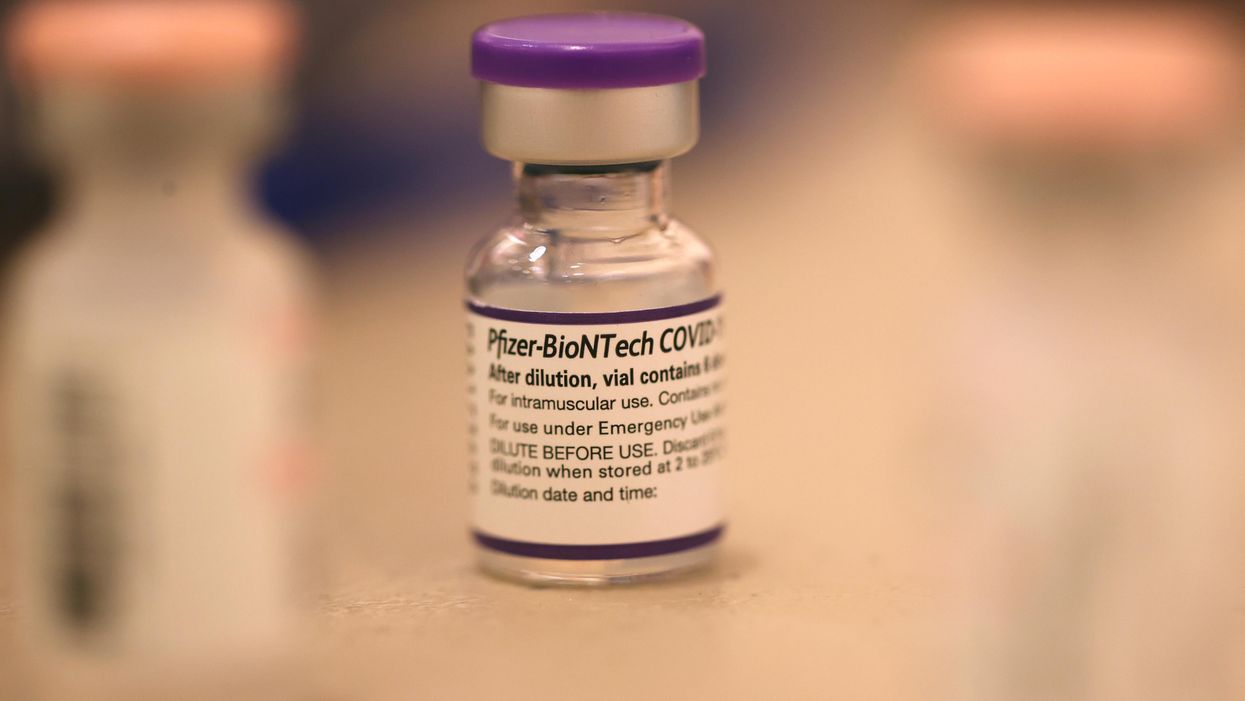
Photo by Justin Sullivan/Getty Images

New studies have reportedly shown that people may not need a fourth COVID-19 booster shot for months — or even years, depending on the person.
John Wherry, director of the Institute for Immunology at the University of Pennsylvania, told the New York Times for a recent report that researchers are "starting to see now diminishing returns on the number of additional doses" and added that a fourth vaccination may not be necessary for the average adult for a significant period of time.
Wherry added that while people over the age of 65 and those with compromised immune systems may continue to benefit from a fourth dose, it could be unnecessary for most people.
According to the report, scientists say that a third shot of an approved COVID-19 vaccine prompts the human body to manufacture a variety of antibodies that would typically be suitable to fight off various strains and variants of COVID-19.
Dr. Julie McElrath, infectious diseases physician and immunologist at Fred Hutchinson Cancer Research Center in Seattle, told the outlet, “If people are exposed to another variant like Omicron, they now got some extra ammunition to fight it.”
The outlet reported that three doses of a COVID-19 vaccine — even just two for some people — are "enough to protect most people from serious illness and death for a long time" and pointed out that a typical immune system can recall and destroy the virus due to the shots over months to even years.
Dr. Wendy Burgers, immunologist at the University of Cape Town, said that the memory response can "last for ages."
"Potentially the T-cell response is extremely long lived," Burgers added.
On Monday, NPR global health correspondent Michaeleen Doucleff reported that the current data states that the general population does not need a fourth dose.
"Last week, a study came out of Israel looking specifically at what a fourth dose does," Doucleff said. "How much does it help? It's a preliminary study, and it's pretty small. It included only about 700 people. But it found that quite clearly that a fourth shot of either Pfizer or Moderna doesn't add much protection against infection beyond the third dose. Specifically, it increased protection by only about 10% to 30%, and that protection will likely wane over time."
Doucleff added that more is not necessarily better when it comes to booster shots.
"[T]his vaccine really isn't designed to stop Omicron, stop Omicron infections," she explained. "It's designed to stop the original variants of the virus that circulated two years ago and are very different than Omicron. ... In other words, no matter how many shots you throw at it — four, five, six — it's just not going to stop infections."
Akiko Iwasaki, immunologist at Yale University, added that people in certain demographics — such as elderly, immunocompromised, or who have issues such as obesity or heart disease — would benefit from an additional dose.
"Their immune response is not as robust as a healthy young person, and then that is probably the first target group that would require such a booster," Iwasaki explained.